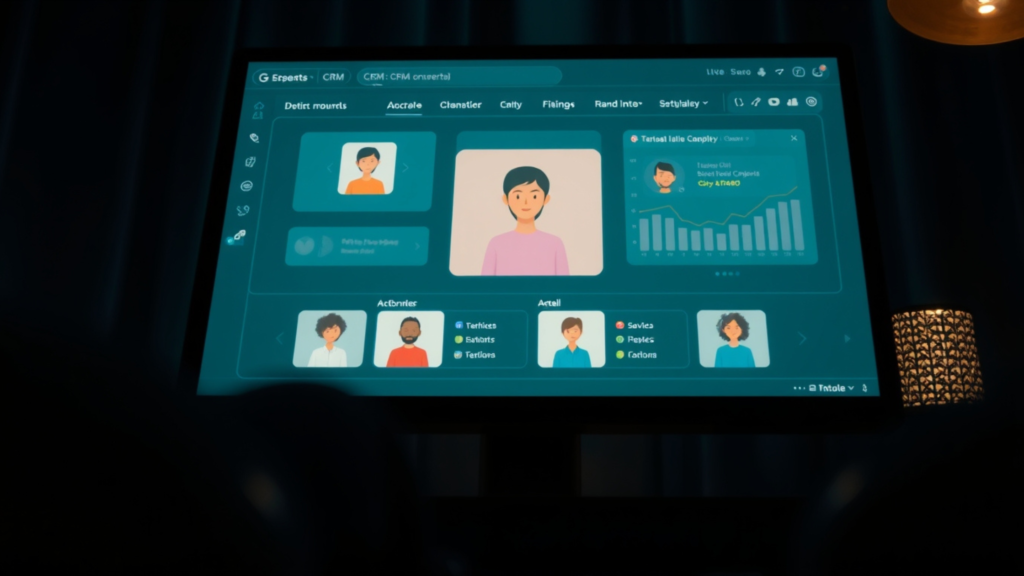Top 10 Benefits of Virtual Event Marketing That Drive Business Growth

Did you know that 70% of businesses are pivoting to virtual events this year? As the digital landscape evolves, so does the way we connect and do business. Virtual event marketing is not just a trend; it’s becoming a cornerstone of how savvy businesses engage with their global audiences.
If you’re not yet leveraging virtual events, here’s why you should consider it.
Global Reach and Accessibility

Why it Matters:
Virtual events eliminate geographical barriers, making your business accessible to a global audience. This is not just about reaching more people—it’s about opening your brand to markets you never thought possible.
Real-World Impact:
- Increased Attendance: Businesses often see a 40% increase in attendance when hosting events online.
- Diverse Audience: Engage with participants from different cultural backgrounds and geographical locations, which can enrich the experience for all attendees and open up new market opportunities.
Cost-Effectiveness
Comparing Costs:
Switching to virtual events can significantly slash the hefty expenses tied to physical events. Think about the savings on venues, travel, and logistics—all of which can now be channeled into enhancing your digital marketing strategies.
ROI Metrics:
- Lower Costs, Higher ROI: Companies report saving up to 75% on event costs while tripling their returns—making virtual events not just cheaper, but more effective.

Enhanced Data Collection and Analytics
Tools and Techniques:
With sophisticated analytics tools, virtual events provide precise data about who attended your event, which sessions they were interested in, and how they interacted with your content.
Actionable Insights:
- Tailored Marketing: Use real-time data to understand participant behavior and refine your marketing efforts.
- Improved Customer Engagement: Analyze engagement patterns to enhance future event planning and customer interaction strategies.
Lead Generation and Conversion
Mechanisms for Lead Capture:
Virtual events integrate seamlessly with CRM systems, making it easier to track interactions, gather insights, and follow up with leads effectively.
Conversion Strategies:
- Personalized Follow-ups: Utilize detailed analytics to tailor follow-up communications and convert prospects into loyal customers.
Increased Engagement and Interaction

Interactive Features:
Virtual platforms are equipped with tools that turn passive listeners into active participants, creating a dynamic two-way interaction.
Benefits of Interactive Participation:
- Higher Retention Rates: Engaging content and interactive sessions lead to better information retention and a more enjoyable user experience.
- Immediate Feedback: Instant polls and surveys can help gauge attendee reactions and adjust content in real-time.
Flexibility and Scalability
Various Formats:
Offer your content live or on-demand to accommodate global audiences across different time zones, increasing the accessibility and convenience of attending your events.
Scaling Up:
- Adaptable to Audience Size: Whether it’s 10 people or 10,000, virtual platforms can handle it without the need for physical space expansions.

Brand Awareness and Loyalty
Building Visibility:
Showcase your brand to a global audience, demonstrate your industry expertise, and share innovations that set you apart.
Cultivating Loyalty:
- Consistent Brand Messaging: Frequent virtual events help keep your brand fresh in the minds of consumers.
- Community Building: Create a community around your brand by providing regular, valuable interactions that attendees will look forward to.
Sustainability and Environmental Impact

Eco-Friendly Practices:
Reduce your carbon footprint by cutting down on the travel and material use associated with in-person events.
Consumer Perception:
- Brand Alignment with Consumer Values: Show your commitment to sustainability, which can enhance your brand’s appeal to environmentally conscious consumers.
Content Repurposing and Extended Impact
Beyond the Event:
The content generated during virtual events can be used in multiple marketing channels, providing ongoing value long after the event has ended.
Long-Term Value:
- Continued Engagement: Use recordings and session highlights in your future marketing efforts to keep engaging with your audience.
Networking Opportunities

Virtual Networking Tools:
Facilitate connections that go beyond geographical boundaries, allowing for more diverse and enriching interactions.
Networking Success Stories:
- Building Business Relationships: Many businesses find valuable partners and collaborators through virtual networking.
Conclusion:
Now that you’ve seen the powerful benefits of virtual event marketing, it’s clear why this approach is essential for any business looking to grow and thrive in a digital-first world. From expanding your reach and streamlining costs to enhancing user engagement and driving robust data insights, virtual events offer unparalleled opportunities for business innovation and customer connection.
Why Saletancy Is Your Best Virtual Event Marketing Partner
Choosing the right partner for your virtual event marketing is crucial for success. At Saletancy, we understand that every event is a unique opportunity to showcase your brand’s strengths and connect with your audience on a deeper level.
Expertise and Experience: Saletancy brings a wealth of knowledge in digital marketing strategies, ensuring your virtual events are both engaging and effective. Our team of experts uses a data-driven approach to create tailored experiences that meet your specific business needs and goals.
Customized Solutions: We recognize that one size does not fit all. That’s why we offer customized event solutions designed to maximize attendee engagement and deliver measurable results. Whether it’s a webinar, virtual conference, or live stream, we craft experiences that resonate with your audience and amplify your brand’s message.
Proven Track Record: With a history of successful events under our belt, Saletancy has the tools, technology, and techniques to ensure your event stands out. Our clients trust us to take their virtual events to the next level, and we deliver by turning every event into a memorable experience.
Reliable Support: From planning to execution, Saletancy is with you every step of the way. We provide end-to-end support to ensure your event goes off without a hitch, helping you focus on what’s important—engaging with your audience.
Ready to elevate your virtual event experience?
Contact us
FAQs:-
1. What is virtual event marketing?
Virtual event marketing involves promoting and hosting events on digital platforms instead of in-person venues. This approach allows businesses to reach a global audience, reduce costs, and collect valuable data on attendee engagement and behavior.
2. How do virtual events differ from webinars?
While both virtual events and webinars are hosted online, virtual events are typically more interactive and encompass a variety of sessions and activities, including networking opportunities, workshops, and exhibitions. Webinars, however, are usually more focused on presentation and lecture formats designed for educational purposes.
3. What are the key benefits of hosting virtual events?
The key benefits include:
- Global reach and accessibility
- Cost-effectiveness and higher ROI
- Enhanced data collection and analytics
- Increased engagement and interaction
- Greater flexibility and scalability
- Opportunities for content repurposing
- Reduced environmental impact
4. What technology is needed to host a virtual event?
To host a virtual event, you will need a reliable virtual event platform that supports video streaming, interactive features (like chat and polling), attendee management, and data analytics. Common tools include Zoom, Microsoft Teams, and bespoke platforms like ON24 or Hopin, depending on the size and complexity of the event.
5. How can businesses measure the success of virtual events? Success can be measured through various metrics, such as attendee numbers, engagement rates (time spent at the event, participation in polls and chats), conversion rates (from lead to customer), and overall satisfaction through post-event surveys.
6. Can virtual events be monetized?
Yes, virtual events can be monetized in several ways, including charging for tickets, offering paid sponsorships, and promoting exclusive content or experiences to attendees. Strategies for monetization will vary based on the event’s goals and audience.
7. How do you ensure high engagement in virtual events?
To ensure high engagement, incorporate interactive elements such as Q&A sessions, live polls, and interactive workshops. It’s also beneficial to use engaging and dynamic speakers, provide networking opportunities through virtual lounges or breakout rooms, and keep sessions concise and focused.
8. What are the common challenges of virtual event marketing and how can they be overcome?
Common challenges include technological issues, lower participant interaction, and attendee fatigue. These can be overcome by choosing reliable technology, designing interactive and engaging content, and scheduling breaks for longer events to keep the audience fresh and engaged.
9. How long should a virtual event last?
The ideal length of a virtual event depends on the content and audience engagement levels. Short events like webinars might last 1-2 hours, while full-day or multi-day conferences should have a mix of sessions, breaks, and interactive elements to maintain interest.
10. Are virtual events here to stay post-pandemic?
While the popularity of virtual events rose due to the pandemic, they are likely to remain a staple due to their broader reach, cost-effectiveness, and flexibility. Many businesses plan to use a hybrid approach, combining both in-person and virtual elements, to accommodate diverse audience preferences.